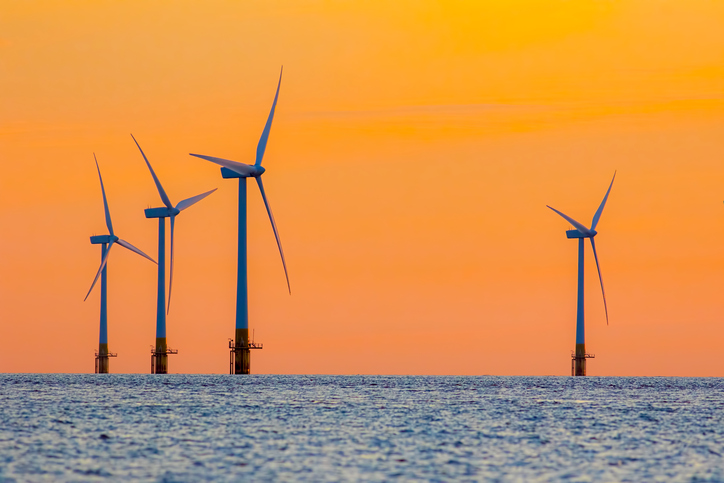Balancing offshore wind farm construction between the east and west coasts of the UK would strengthen the consistency of energy supply and help reduce reliance on balancing actions using fossil-fuelled dispatchable generation, said Regen in a new report.
Regen, in partnership with Magnora Offshore Wind, Morwind, Northland Power and Simply Blue Group, created the report to outline opportunities that lie in the wind sector in the UK as the nation transitions to a net zero energy system.
The Go West! study showed that development of west coast wind farms would also reduce the volatility of energy generation, which would provide additional benefits for system operation.
Alongside this, it could also level up infrastructure and communities that are situated adjacent to the Celtic Sea and north and west Scotland. It could also improve the functionality of the UK’s energy system.
“There is no doubt that offshore wind will play a significant role in the future of the UK’s energy mix and be vital to our energy security. Advancements in floating offshore wind mean that developments in the Celtic Sea and off the north and west coasts of Scotland are no longer unattainable,” said Becky Fowell, energy analyst at Regen.
“Now is the time to utilise these advancements and ensure that UK consumers reap the benefits provided by an offshore wind fleet that is more equally distributed around the UK.”
In order to capitalise on the growing demand for offshore wind and interest in the sector, the report makes several recommendations for policy innovation to accelerate the advancement of a balanced fleet of offshore wind.
This includes a more integrated, strategic approach to offshore development, leasing and planning, the introduction of policy and financial mechanisms that reflect the value of increased diversity of supply, and support innovation and investment in both infrastructure and supply chain development.
“The UK’s world-leading offshore wind sector will play a vital role in achieving net zero – a fundamental component of UK energy security – but the distribution of wind farms around the UK has a significant impact upon energy system balancing and price volatility,” said Jack Adkins, project manager and senior analyst at Regen.
“With almost three-quarters of the UK’s offshore wind capacity currently on the east coast of Great Britain, the ‘Go West!’ study explores and identifies the benefits that pursuing a more east-west balanced offshore wind fleet could bring to both the UK energy system and energy consumers, such as more consistent generation, a reduction in the cost of energy generation and lower emissions.
“To capture these benefits, we need an integrated delivery strategy and policy and financial mechanisms that support increased diversity of supply, as outlined in this report.”
Offshore wind development has received significant backing from the government in previous years with the Conservative Party having announced the country’s offshore wind generation target had increased to 40GW by 2030 in late 2020.
At the time this included a pledge of £160 million to help upgrade ports and factories, enabling them to manufacture the turbines needed. In doing so it was said that it would create 2,000 jobs in construction, as well as support a further 60,000.
More recently, National Grid ESO explained that a coordinated approach to connecting offshore wind farms to the grid could save consumers £5.5 billion in costs by 2030.
National Grid ESO set out a pathway for a single, integrated approach to supporting the large scale rollout of offshore wind and its connection to the transmission network in July. The Pathway to 2030 including the Holistic Network Design had been one of the largest investment plans in critical electricity transmission networks since the 1950s and 60s.
Connectivity continues to be a large discussion point in the sector and is recognised as a stumbling block with long delays recorded with renewable projects.
To rectify this, RSK highlighted the need for a cleanse of grid capacity registers, a shift in capacity to areas with generation potential and the streamlining of relevant energy developments as a means to unlock the UK’s renewable energy sector.
Detailed within the report Decarbonising the United Kingdom: Recommendations for the renewable energy sector, RSK called to end grid blocking to ensure renewable generation schemes can be accelerated for connectivity. In doing so, this can help stabilise energy bills whilst also accelerating the UK towards net zero.





